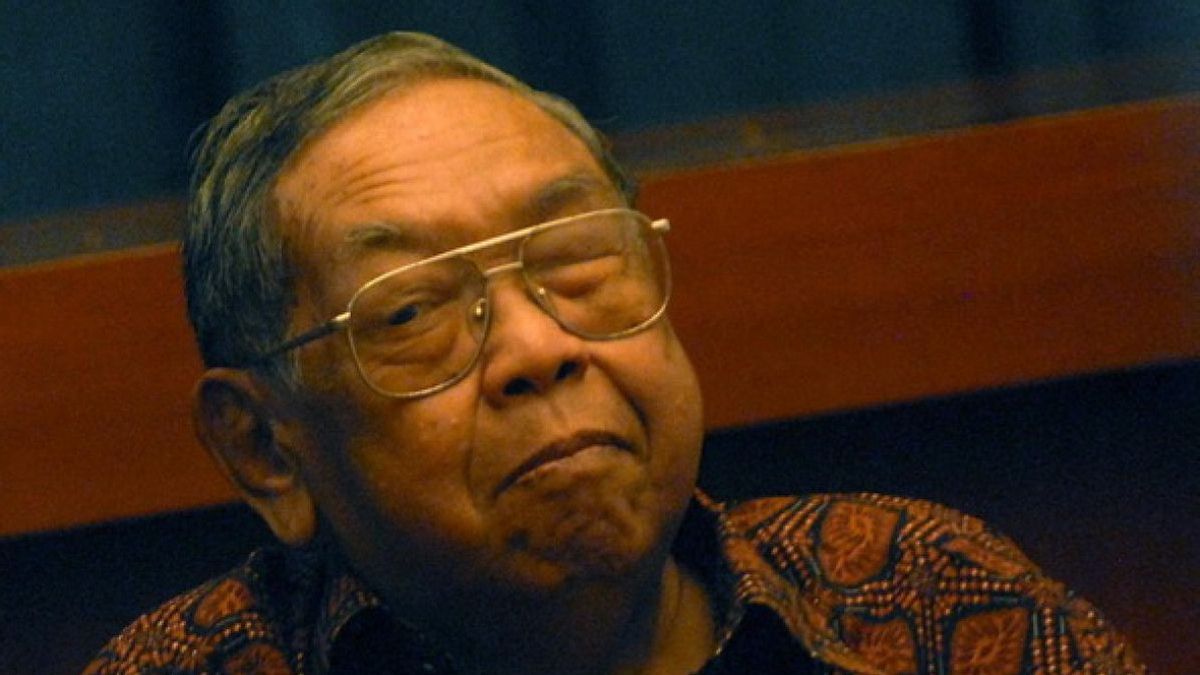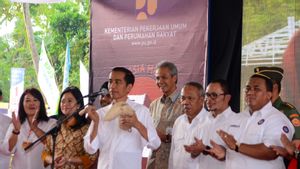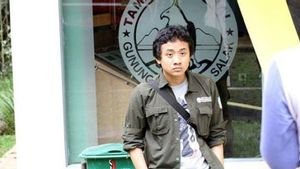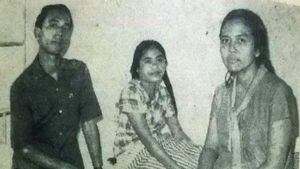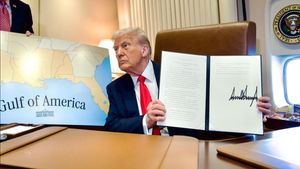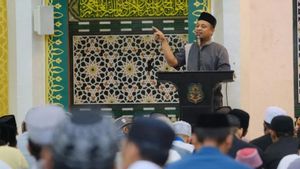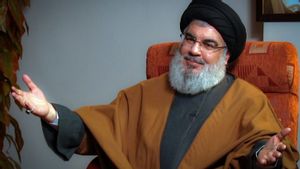JAKARTA - Suharto and the New Order (Orba) are known to be "cheatful" to entrepreneurs. The owner of power often gives land concessions for mining to the wealthy. The gift often sparked a lot of conflict until Suharto stepped down.
This condition slightly subsided during the transitional power period. Take for example during the reign of Abdurrahman Wahid (Gus Gur). Nahdlatul Ulama (NU) figures are actually echoed as the only president who does not give mining concessions to entrepreneurs. Is that true?
The government has a responsibility to increase the lives of the Indonesian people. This desire was carried out by inflamed economic growth. Suharto and the New Order also worked together. The owner of the power to look at all kinds of potential properties of the motherland -- forest -- to increase state income.
The New Order then made legal products that were possible for the control of forest area land to belong to the state, not indigenous peoples. This condition makes the New Order have the power to spread concessions/permission of gifts, control, land management for various activities. Mainly, mining permits to national and transnational entrepreneurs.
The government thinks that by deploying a lot of concessions, the state's income mining land will be large. This wish was realized. Instead of only bringing profits, the distribution of land concessions also often creates agrarian conflicts.
Gelora protested because customary lands were disturbed. New Order was not afraid. Resistance is often conquered with military force. The use of military force to control people's lands is effective.
The giving of concessions by the New Order is increasingly massive. National figures also protested. Gus Dur, especially. The NU figure is known to often contradict the New Order government. Moreover, when it involves land conflicts.
Gus Dur and NU are like the main opposition to the New Order. They went directly to help the people's struggle gain their rights. Problems arise. Suharto and the New Order were too strong. This condition makes land concession matters unable to be dammed.
SEE ALSO:
Permits continue to be issued to corporations. This condition further matures the hatred of indigenous peoples towards New Order. The hatred lasted until Suharto stepped down from power in 1998.
One year after General Suharto came to power in 1966, the Indonesian government enacted a Forestry Law, namely Law Number 5 of 1967, which no longer refers to the Agrarian Basic Law (UUPA). The Forestry Law revives the principle of the state domain which stipulates that all land in the 'forest area' belongs to the state.
The law prioritizes the authority of the Minister of Forestry to appoint and determine forest areas. It is not recognized that people's ownership in forest areas appointed or determined by the Minister of Forestry is the beginning of the growth of agrarian resistance seeds," explained Noer Fauzi Rahman in the book Land Reform & Indonesian Agrarian Movement (2017).
Fresh air related to the fate of Indonesian forest land has blew in the era of Gus Dur's administration. At that time, Gus Dur was considered to be progressive because he dared to secure Indonesian forests from mining power.
The image of Gus Dur as president of Indonesia is the only one who does not provide mining concessions for entrepreneurs. This courage is side by side with his policy of closing the Indorayon company in North Sumatra in 1999.
The paper company operating since 1988 is considered to have brought a lot of harm, rather than benefits. Indorayon's presence is believed to have brought many cases of environmental pollution, land confiscation, and deforestation. Gus Dur was not afraid and dared to close it.
Environmental Observer Yani Sagaroa agrees that Gus Dur has never provided land concessions for mining to entrepreneurs. This attitude is considered reasonable and actually must be seen from various sides.
Gus Dur is indeed progressive in the life of the Indonesian people. However, the matter of giving concessions is not only because of Gus Dur's attitude as a pro-people. Yani invites the general public to see the conditions when Gus Dur goes up to the helm of power.
Indorayon adalah contoh alotnya perlawanan masyarakat thd korporasi yg dianggap eksesif kpd ruang hidup warga. Puanjang banget konfliknya.Btw, sepanjang sejarah kita punya peesiden, Gus Dur adl satu-satunya presiden yg gak pernah memberikan konsesi lahan kpd perusahaan tambang. https://t.co/FT4OV0jABj pic.twitter.com/tojFo2X7qW
— Zen RS (@zenrs) February 19, 2024
Indorayon adalah contoh alotnya perlawanan masyarakat thd korporasi yg dianggap eksesif kpd ruang hidup warga. Puanjang banget konfliknya.Btw, sepanjang sejarah kita punya peesiden, Gus Dur adl satu-satunya presiden yg gak pernah memberikan konsesi lahan kpd perusahaan tambang. https://t.co/FT4OV0jABj pic.twitter.com/tojFo2X7qW
Gus Dur at that time led in the transition era. The era of his government was short from 1999 to 2001. This means that Gus Dur did not focus much on mining matters. Even regarding the closing case of Indorayon, the case has actually been rolling for a long time.
Once again, in the Gus Dur era, his attention has not led to mining governance matters. The government is still focusing on transitional matters. So, policies that are progressive or significant in regulating environmental governance do not yet exist. If you refer to Gus Dur's case closing Indorayon, you can say it's a case first. The process has been in the New Order era since the New Order era."
In the end, Gus Dur took over for the closure. Gus is actually progressive, but has not done much. However, this fact did not erase Gus Dur's courage in rejecting the issue of nuclear energy and conflict in defending the people. He put up once for things like that. Only because of time constraints and indeed a crisis situation at that time so that attention to environmental issues was not so much, "said the former National Council for the Indonesian Environment Wahana (WALHI) for the 2008-2012 era, Yani Sagaroa when contacted by VOI, June 4, 2024.
The English, Chinese, Japanese, Arabic, and French versions are automatically generated by the AI. So there may still be inaccuracies in translating, please always see Indonesian as our main language. (system supported by DigitalSiber.id)
